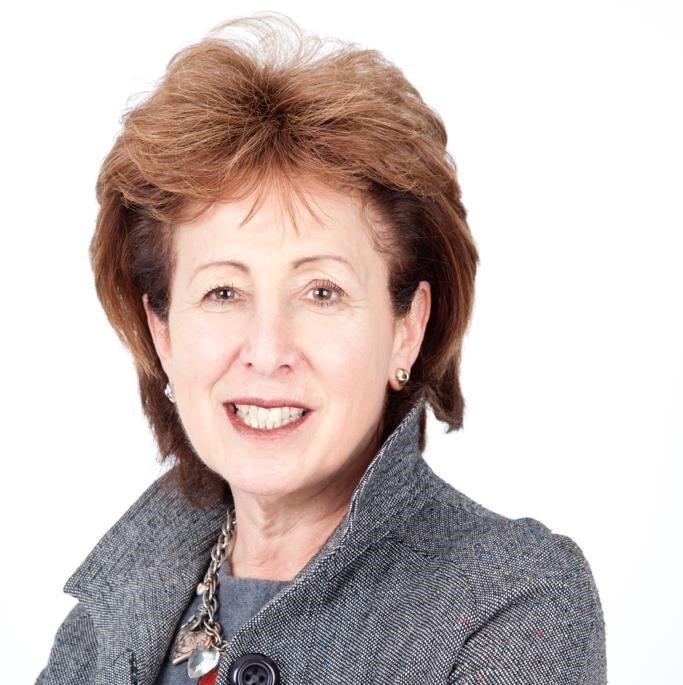
Featured Item

The ABC of bullying – and what to do about it
Author and journalist Marion Scher has just brought out a new book called Big Bully – An Epidemic of Unkindness, a ground breaking look at this scourge in our society. The SA Jewish Report caught up with her.
What inspired you to write this book?
I’ve been writing about mental health for 29 years, and after researching and writing my last book, Surfacing: People Coping with Depression and Mental Illness, I realised that bullying was at the root of many mental-health issues. Like all my books on such topics, I simply want to start conversations and break the stigma around these vital topics.
Have you had any close encounters with bullying? If so, what happened?
Apart from prefects at high school being foul to us newbies as a whole, somehow I’ve managed to miss any direct bullying. As a mother of two, I saw my kids going through different bullying scenarios which hurt just as deeply as if it had happened to me. When my son came home from school and related an incident of bullying from a “good friend” of his, we simply called his mother, who came straight around with her son. After a little digging, we discovered that this kid had wanted to get in with a group of “cool guys” by being nasty to other boys. Interestingly, this little group did come under scrutiny, and were dealt with effectively by the school.
Why are we living with an epidemic of unkindness?
It’s all around us, from the people at tills in supermarkets who often get abused and rarely get a thank you, to waitrons who don’t hear the words “please” and “thank you” often enough. I’ve noticed that it stems from the example shown by parents. If they don’t practice kindness, their children will follow suit.
Do you have any statistics on bullying in South Africa?
A poll undertaken back in 2014 surveyed more than 2 000 students, and found that an astounding 58% of South African students have been targeted by bullies, according to BullyBusters.
Most of us consider bullying to be something done to schoolkids, where there is clearly a huge problem. How did most schools react to being approached for your research?
Sadly, after contacting many major high schools including Jewish schools, I didn’t even receive a reply to my emails. One school replied immediately – Westerford High School in Cape Town. It couldn’t do enough to help me, even organising a large group of pupils from Grade 9 to matric for me to talk to. It has a healthy attitude of inclusiveness in the school when it comes to bullying, gender, and LGBTQI+ (lesbian, gay, bisexual, transgender, queer, intersex) issues.
Why do you think they reacted that way?
Over my 35 years as a journalist, I’ve found that when schools are approached for comment on issues such as drugs or sex issues, they don’t want to comment as that would mean they would be admitting to having such problems – as if they don’t! Heads are firmly in the sand here.
Bullying for school children is no longer just on playgrounds, it’s online, and an all-invasive, day-and-night torment. How do we stop this?
My wonderful sponsor, Lundbeck, without whom there would be no book, asked me from a legal standpoint to include only teens in the book, so while I didn’t specifically talk about younger children, virtually every issue that affects teens is the same for younger kids. Social media bullying is happening from the moment children are exposed to it. I don’t believe you can stop it completely. If you don’t allow your kids access to phones or computers, they’ll simply use their friend’s devices. Keep channels of communication open with your child, and be aware of any sudden change of mood or if they’re suddenly reluctant to go to school or mix with kids who were previously their friends. Read up on the subject, and encourage schools to be more involved in this issue.
We recently spoke to youngsters who were bullied, and they told us that teachers and adults in general don’t understand and can’t help them. What’s the truth?
There’s definitely a generational gap. Schools and parents can help simply by co-ordinating their efforts and using various organisations that specialise in going into schools to talk to kids, using young people to bridge those gaps.
How does bullying play out at home in interpersonal relationships?
This is far more common than we think. Bullying doesn’t have to mean hitting someone. It’s often simply one partner constantly undermining the other. Emotional bullying does massive damage.
Why do people get involved with – and even marry – bullies?
Weirdly, quite a few of the people I interviewed who came from abusive homes married abusive partners. As I’m not a mental-health professional, this is difficult to answer. It does appear to be a pattern though.
How big an impact does bullying have on a victim’s life?
Massive. It doesn’t matter what age a person is, bullying can change their life forever. Without proper help or counselling, it will stay with them and have an impact on every relationship they have or will have.
In the workplace, what can be done about bullying, especially when a superior is at fault?
This is tricky, as I found that human resources isn’t there for the employees, but for the bosses. It’s particularly hard when living through a period when people are hanging on to their jobs for fear of unemployment.
Why do you believe people bully others?
From my research, I would say it’s often a case of them repeating the behaviour they grew up with. In the case of workplace bullies, particularly women bosses, I think it’s possibly a case of women having to work particularly hard to prove themselves, and being tough becomes part of their workplace persona.
How do you call bullies to account?
By doing something about it. Stay quiet, and nothing will change. The workplace scenario is particularly tough because of job security. In relationships, it can take years for someone to get the courage to walk out the door. This is often also tied in with financial security.
What do you hope to achieve with this book?
Just to start conversations, and stop pretending it doesn’t exist.
You’re already writing your next book. What’s it about?
Men and mental health. A typical South African man won’t talk about the fact that he’s either under massive pressure, is stressed or depressed, and when it’s more than just a bad day. By interviewing top sportsmen, businessmen, those left behind by suicide, and the “average” South African man, I hope once again to start more conversations, help break the stigma around this vital topic, and show that it’s ok not to be ok – it’s not a sign of weakness.










